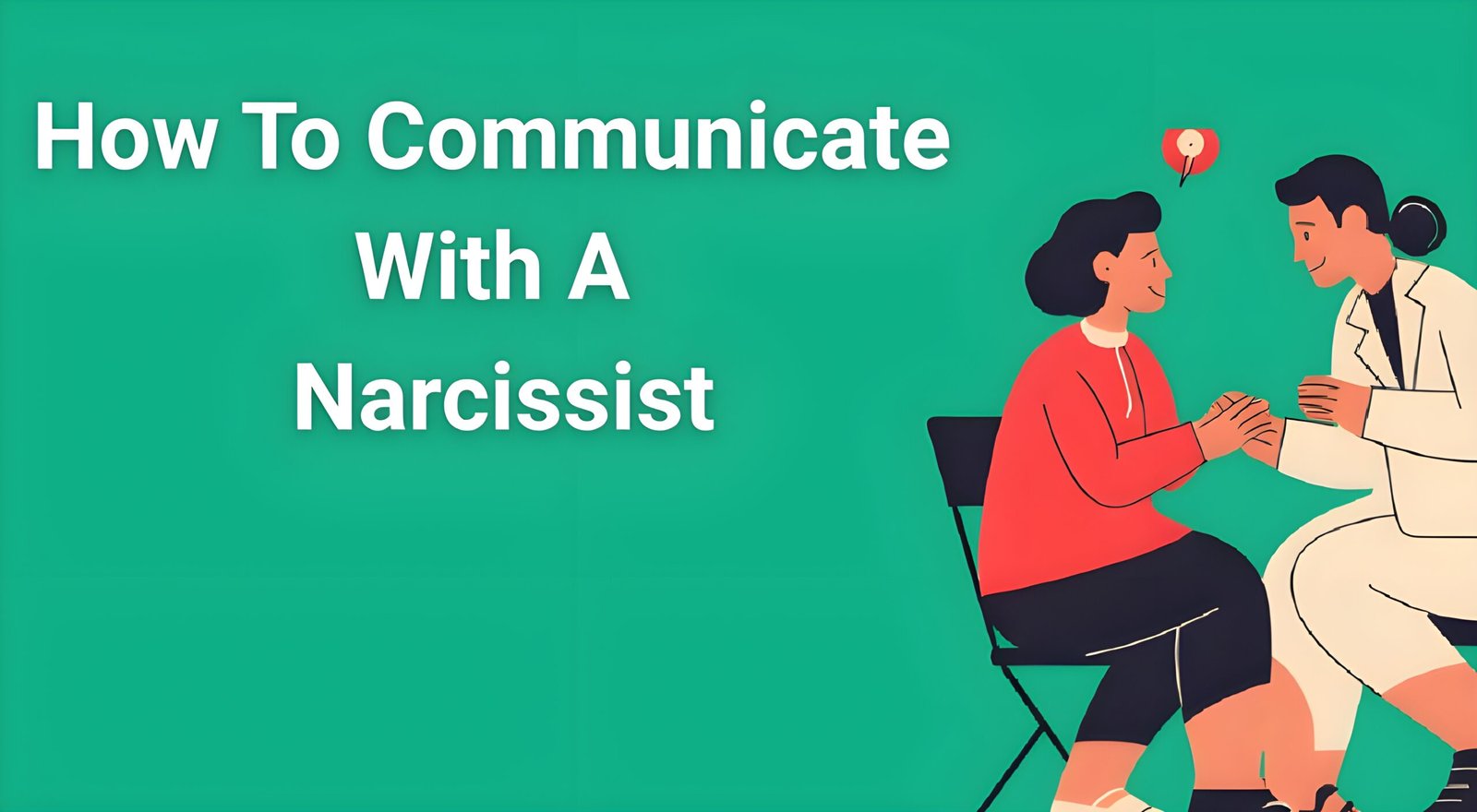Wondering how to annoy a narcissist or how to irritate a narcissist who’s been manipulating you? While understanding what triggers narcissistic rage might seem appealing after experiencing their abuse, intentionally antagonizing a narcissist can be extremely dangerous and often backfires catastrophically. This guide reveals what actually annoys narcissists—but more importantly, why you should never use this information to deliberately provoke them.
- Why People Search “How to Annoy a Narcissist”
- The Dangerous Reality of Narcissistic Rage
- 12 Things That Actually Annoy Narcissists (And Why You Shouldn’t Use Them)
- The Gray Rock Method: A Safer Alternative to Annoyance
- Healthy Alternatives to Learning How to Annoy a Narcissist
- When Gray Rock Isn’t Enough: Advanced Protection Strategies
- The Psychology Behind Wanting to Annoy Narcissists
- Red Flags: When Learning How to Annoy a Narcissist Becomes Dangerous
- Frequently Asked Questions About How to Annoy a Narcissist
Critical Warning: While this article explains how to annoy a narcissist and how to irritate a narcissist based on psychological research, attempting these tactics can trigger dangerous narcissistic rage, escalation of abuse, and potential violence. Instead of learning how to annoy a narcissist, focus on proven protective strategies like gray rock, boundaries, and no contact.
Why People Search “How to Annoy a Narcissist”
The desire to learn how to annoy a narcissist typically stems from legitimate psychological needs after experiencing narcissistic abuse:
Validation and Revenge: After being manipulated, gaslit, and emotionally abused, survivors naturally want to see their abuser experience discomfort. Learning how to irritate a narcissist feels like reclaiming power and getting justice for the pain they’ve caused.
Regaining Control: Narcissistic abuse strips victims of their sense of agency and control. Understanding what annoys narcissists can temporarily feel like having power over someone who seemed untouchable and superior.
Testing Relationship Dynamics: Some people search how to annoy a narcissist to test whether their partner, family member, or colleague displays narcissistic traits by observing their reactions to certain triggers.
Curiosity About Psychology: Interest in how to irritate a narcissist often reflects genuine curiosity about narcissistic psychology, triggers, and the mechanics of narcissistic supply.
While these feelings are completely understandable, acting on them by deliberately trying to annoy or irritate a narcissist can have severe consequences for your safety and mental health.
The Dangerous Reality of Narcissistic Rage
Before exploring what annoys narcissists, it’s crucial to understand that how to annoy a narcissist knowledge can trigger narcissistic rage—an explosive, disproportionate anger response that can be psychologically and physically dangerous.
What Triggers Narcissistic Rage
Narcissistic rage occurs when a narcissist experiences “narcissistic injury“—any threat to their grandiose self-image, sense of superiority, or control over others. This includes:
- Criticism or accountability: Being called out for their behavior
- Loss of control: When they can’t manipulate or dominate situations
- Exposure of their true self: Having their mask of perfection removed
- Being ignored or dismissed: Loss of attention and narcissistic supply
- Boundaries and consequences: When people refuse to enable their behavior
Why Narcissistic Rage Is Dangerous
When you successfully learn how to irritate a narcissist, their rage response can include:
- Explosive verbal abuse: Screaming, insults, threats, and character assassination
- Physical violence: Assault, property destruction, or intimidation tactics
- Smear campaigns: Spreading lies to destroy your reputation and relationships
- Legal retaliation: False accusations, frivolous lawsuits, or harassment
- Escalated psychological abuse: Increased manipulation, gaslighting, and control tactics
The fundamental problem with knowing how to annoy a narcissist is that narcissists don’t respond to provocation the way emotionally healthy people do. Instead of self-reflection or behavior change, they escalate their abuse and retaliation.
12 Things That Actually Annoy Narcissists (And Why You Shouldn’t Use Them)
1. Being Ignored or Receiving No Attention
What Annoys Them: Narcissists require constant narcissistic supply—attention, admiration, and reactions from others. Being ignored threatens their existence because they need external validation to maintain their self-image.
Why This Works: Attention is like oxygen to narcissists. Without it, they experience psychological distress and may question their own importance and relevance.
Why You Shouldn’t Do It: While ignoring a narcissist can be part of healthy no-contact strategies, deliberately ignoring them as punishment often triggers aggressive attempts to regain your attention, including harassment, stalking, or smear campaigns.
2. Setting and Enforcing Firm Boundaries
What Annoys Them: Boundaries contradict narcissists’ belief that they’re entitled to unlimited access to others’ time, energy, and resources. Clear boundaries challenge their sense of superiority and control.
Why This Works: Boundaries force narcissists to confront the reality that others have autonomy and won’t submit to their demands unconditionally.
Why You Shouldn’t Do It (For Revenge): While boundaries are essential for your protection, setting them specifically to annoy a narcissist rather than protect yourself often leads to boundary violations, escalated manipulation, and increased conflict.
3. Remaining Calm During Their Emotional Outbursts
What Annoys Them: Narcissists use emotional volatility to control others. When you don’t react with fear, anger, or defensive behavior during their rage, it denies them the emotional supply they seek.
Why This Works: Your calm response suggests you’re not intimidated by their tactics, which threatens their sense of power and control over you.
Why You Shouldn’t Do It (As Provocation): Staying calm for your own protection is healthy, but deliberately maintaining composure to irritate them can escalate their behavior as they try harder to get a reaction.
4. Exposing Their Lies or Inconsistencies
What Annoys Them: Narcissists construct elaborate false narratives about themselves and their actions. Having their lies exposed threatens their carefully maintained image and forces them to confront reality.
Why This Works: Being caught in lies creates cognitive dissonance and shame, emotions narcissists desperately try to avoid.
Why You Shouldn’t Do It: Exposing narcissists often triggers severe retaliation including smear campaigns, aggressive gaslighting, and attempts to destroy your credibility before you can damage theirs.
5. Showing Independence and Self-Sufficiency
What Annoys Them: Narcissists prefer dependent partners, friends, and family members they can control. Your independence threatens their ability to manipulate and suggests you don’t need them.
Why This Works: Independence contradicts their belief that others should orbit around them and exist primarily to serve their needs.
Why You Shouldn’t Do It (For Revenge): While developing independence is crucial for recovery, flaunting it specifically to irritate a narcissist can trigger abandonment fears that lead to love bombing, stalking, or sabotage of your success.
6. Refusing to Engage in Their Drama
What Annoys Them: Narcissists create drama to maintain excitement, control, and attention. When you refuse to participate in their manufactured conflicts, it denies them the stimulation they crave.
Why This Works: Drama refusal suggests you’re not invested in their emotional world, which threatens their sense of importance in your life.
Why You Shouldn’t Do It (As Strategy): While avoiding drama is healthy, obviously disengaging specifically to frustrate them often leads to escalated drama creation and more aggressive attempts to pull you back in.
7. Being Praised or Successful Without Their Input
What Annoys Them: Narcissists believe they should be the center of all positive attention. Your success without their involvement triggers intense envy and threatens their sense of superiority.
Why This Works: Your independent success suggests you don’t need their validation or contribution, which contradicts their grandiose self-image.
Why You Shouldn’t Do It: While pursuing success is important, deliberately showcasing achievements to irritate narcissists often triggers sabotage attempts, character assassination, or efforts to minimize your accomplishments.
8. Expressing Genuine Empathy for Others
What Annoys Them: Narcissists lack genuine empathy and feel threatened by others who display authentic emotional connection and compassion. Your empathy highlights their emotional deficits.
Why This Works: Empathy represents emotional intelligence and depth that narcissists can’t understand or replicate, making them feel inadequate by comparison.
Why You Shouldn’t Do It (For Effect): While empathy is a beautiful trait, performing it specifically to irritate narcissists can lead to them targeting the people you show compassion toward.
9. Maintaining Emotional Stability
What Annoys Them: Narcissists thrive on emotional chaos and instability in others. Your consistent emotional regulation denies them opportunities to manipulate your feelings and reactions.
Why This Works: Emotional stability suggests you’re not dependent on them for emotional regulation, which threatens their sense of control and importance.
Why You Shouldn’t Do It (As Weapon): While emotional stability is healthy, maintaining it specifically to frustrate narcissists can lead to increased attempts to destabilize your mental health through targeted triggers.
10. Having Strong Support Systems
What Annoys Them: Narcissists prefer isolated victims who depend solely on them for social connection. Your strong relationships with others threaten their monopoly on your emotional world.
Why This Works: Support systems provide reality checks and validation that counter the narcissist’s gaslighting and manipulation attempts.
Why You Shouldn’t Do It: While support systems are crucial, flaunting them to irritate narcissists often leads to attempts to sabotage your relationships through lies, manipulation, or character assassination.
11. Refusing to Take Responsibility for Their Emotions
What Annoys Them: Narcissists expect others to manage their emotional states and take blame for their reactions. When you refuse this role, it forces them to face their own emotional immaturity.
Why This Works: Emotional responsibility contradicts their belief that others exist to regulate their feelings and provide constant validation.
Why You Shouldn’t Do It (Deliberately): While refusing inappropriate responsibility is healthy, doing it specifically to annoy narcissists often triggers increased blame-shifting and guilt-tripping tactics.
12. Living Authentically Without Their Approval
What Annoys Them: Narcissists expect others to seek their permission and validation for life choices. Your authentic self-expression without their input threatens their sense of authority and control.
Why This Works: Authenticity suggests you have a strong sense of self independent of their opinions, which contradicts their belief in their own importance.
Why You Shouldn’t Do It: While authenticity is essential, living genuinely specifically to irritate narcissists can trigger attempts to undermine your self-confidence and authentic expression.
The Gray Rock Method: A Safer Alternative to Annoyance
Instead of learning how to annoy a narcissist, consider the gray rock method—a proven technique for minimizing narcissistic abuse without triggering dangerous retaliation:
What Is Gray Rocking?
Gray rocking involves becoming as uninteresting and unresponsive as possible during interactions with narcissists. Like a gray rock, you provide no emotional reactions, drama, or entertainment that narcissists crave.
How to Gray Rock Effectively
Minimal Responses: Give brief, factual answers without emotional content or personal information. Respond with “okay,” “I see,” or “maybe” rather than engaging in detailed conversations.
Avoid Eye Contact: Limit eye contact and focus on other things during interactions. Look at your phone, read something, or find other distractions that signal disinterest.
Emotional Detachment: Don’t react to their provocations, insults, or attempts to create drama. Maintain a neutral, bored expression regardless of their behavior.
Limited Information Sharing: Don’t share personal details, successes, failures, or anything they could use against you or as conversation fuel.
Brief Interactions: Keep all encounters as short as possible. Don’t linger or provide opportunities for extended manipulation.
Why Gray Rock Works Better Than Annoyance
Unlike deliberately trying to irritate a narcissist, gray rocking works because:
- It’s protective rather than provocative: You’re defending yourself, not attacking them
- It reduces drama gradually: They lose interest over time rather than escalating immediately
- It’s sustainable long-term: You can maintain gray rock indefinitely without escalation
- It preserves your safety: You’re not triggering narcissistic rage intentionally
Healthy Alternatives to Learning How to Annoy a Narcissist
Focus on Your Own Recovery
Instead of learning how to irritate a narcissist, invest energy in healing from narcissistic abuse:
Therapy: Work with professionals experienced in narcissistic abuse recovery to process trauma and rebuild self-esteem.
Support Groups: Connect with other survivors who understand your experience and can provide validation and practical advice.
Self-Care: Develop healthy coping mechanisms, hobbies, and routines that restore your sense of self and wellbeing.
Build Strong Boundaries
Rather than using how to annoy a narcissist tactics, focus on boundary-setting:
Clear Communication: State your limits directly and calmly without explaining or justifying them extensively.
Consistent Enforcement: Follow through on consequences when boundaries are violated, regardless of their reactions.
Document Violations: Keep records of boundary violations for legal purposes or pattern recognition.
Develop No Contact When Possible
The most effective alternative to learning how to irritate a narcissist is complete disconnection:
Block Communication: Remove their ability to contact you through phone, email, social media, and other platforms.
Avoid Shared Spaces: Change routines to minimize accidental encounters that could restart the abuse cycle.
Legal Protection: Obtain restraining orders or legal documentation if they continue attempting contact.
Create a Safety Plan
If you can’t avoid the narcissist entirely, develop comprehensive safety strategies:
Support Network: Build relationships with people who understand the situation and can provide assistance.
Documentation: Keep records of abusive behavior, threats, and manipulation attempts.
Emergency Resources: Know how to quickly access help if the situation becomes dangerous.
When Gray Rock Isn’t Enough: Advanced Protection Strategies
Sometimes even avoiding how to annoy a narcissist tactics isn’t sufficient for safety:
Recognize Escalation Signs
Watch for indicators that the narcissist is becoming more dangerous:
- Increased frequency or intensity of contact attempts
- Stalking behavior or showing up uninvited
- Threats against you, your loved ones, or your property
- Legal harassment through false accusations
- Attempts to turn others against you
Professional Intervention
Consider involving professionals when needed:
Therapists: Get specialized help for trauma recovery and safety planning
Legal Counsel: Understand your rights and options for protection
Law Enforcement: Report threats, harassment, or stalking behavior
Security Professionals: Assess and improve your physical safety measures
Long-term Protection Planning
Develop comprehensive strategies for ongoing safety:
Financial Independence: Ensure you can support yourself without their assistance
Social Support: Maintain relationships that provide emotional and practical support
Career Stability: Protect your professional reputation and income sources
Legal Documentation: Keep evidence of abuse for potential future legal proceedings
The Psychology Behind Wanting to Annoy Narcissists
Understanding why people want to learn how to irritate a narcissist helps address these feelings constructively:
Trauma Response and Survival
The desire for revenge or control represents normal trauma responses:
Fight Response: After experiencing helplessness, wanting to fight back is natural
Validation Seeking: Needing proof that the narcissist can feel pain or discomfort
Power Reclamation: Attempting to regain a sense of agency and control
Healing These Impulses
Address revenge fantasies through healthy processing:
Acknowledge the Feelings: Accept that wanting revenge is normal without acting on it
Process the Trauma: Work through abuse-related emotions with professional support
Channel Energy Positively: Redirect desire for control into self-improvement and boundary-setting
Red Flags: When Learning How to Annoy a Narcissist Becomes Dangerous
Stop researching how to irritate a narcissist if you notice these warning signs:
Personal Safety Concerns
- The narcissist has a history of violence or threats
- They’ve escalated their behavior when challenged before
- You feel genuinely afraid of their potential reactions
- They have access to weapons or have made threats
Mental Health Impact
- You’re obsessing over revenge or retaliation
- Your mental health is declining due to ongoing conflict
- You’re losing sleep or experiencing anxiety about confrontations
- The situation is affecting your work, relationships, or daily functioning
Legal Complications
- They’ve threatened legal action or false accusations
- You share children, property, or business interests
- Your actions could be documented and used against you
- The conflict could impact custody, divorce, or other legal proceedings
Frequently Asked Questions About How to Annoy a Narcissist
How to annoy a narcissist tactics are never truly safe because narcissists respond to provocation with escalation rather than self-reflection. Even seemingly minor irritations can trigger disproportionate retaliation including harassment, smear campaigns, or violence. The unpredictable nature of narcissistic rage makes any deliberate provocation potentially dangerous.
When how to irritate a narcissist tactics work, the typical response includes narcissistic rage, increased manipulation attempts, smear campaigns, or complete devaluation and discard. Rather than learning from the experience, narcissists typically blame the target and escalate their abuse. Success in irritating them often comes at the cost of your safety and peace of mind.
While understanding narcissistic triggers might feel temporarily empowering, actual healing comes from therapy, support systems, and rebuilding your sense of self. How to annoy a narcissist knowledge often keeps you psychologically connected to your abuser rather than helping you move forward. True recovery focuses on your own growth rather than their reactions.
Gray rock is a protective strategy that makes you boring and unresponsive to reduce their interest, while how to irritate a narcissist tactics are deliberately provocative. Gray rock aims to fly under their radar and avoid conflict, whereas annoyance tactics invite confrontation. The gray rock method prioritizes your safety; annoyance strategies prioritize revenge.
If you unintentionally discover how to annoy a narcissist through normal behavior, prioritize immediate safety by removing yourself from the situation, avoiding further contact, documenting the incident, and seeking support from friends, family, or professionals. Don’t apologize or try to fix their reaction, as this often reinforces their abusive behavior.
The Path Forward: Healing Instead of Revenge
While understanding how to annoy a narcissist and how to irritate a narcissist might feel empowering after experiencing their manipulation and abuse, deliberately provoking narcissists creates more danger than satisfaction. The twelve tactics outlined in this guide—being ignored, facing boundaries, remaining calm during outbursts, being exposed, witnessing independence, drama refusal, others’ success, empathy displays, emotional stability, support systems, emotional responsibility, and authentic living—represent what narcissists find most threatening to their grandiose self-image.
However, using this knowledge to intentionally trigger narcissistic rage can result in escalated abuse, violence, legal retaliation, or smear campaigns that destroy your reputation and relationships. The temporary satisfaction of seeing a narcissist frustrated rarely compensates for the long-term consequences of their inevitable retaliation.
Instead of learning how to irritate a narcissist, focus your energy on proven protective strategies like the gray rock method, firm boundary setting, building support systems, and developing comprehensive safety plans. These approaches prioritize your wellbeing and recovery rather than engaging in the dangerous game of narcissistic provocation.
Your healing journey should center on rebuilding your self-worth, processing trauma, and creating a life free from their manipulation—not on finding new ways to engage with their toxicity. The best revenge against a narcissist isn’t learning how to annoy them; it’s living authentically, successfully, and peacefully without their presence or influence.
Ready to focus on healing instead of revenge? As a narcissistic abuse specialist with seven years of experience helping survivors break free from toxic cycles, I understand the powerful urge to want justice or proof that your abuser can feel pain.
Contact me today for specialized support in developing gray rock techniques, establishing protective boundaries, and creating comprehensive safety plans that prioritize your healing over their reactions. You deserve peace and recovery, not ongoing conflict and danger.







